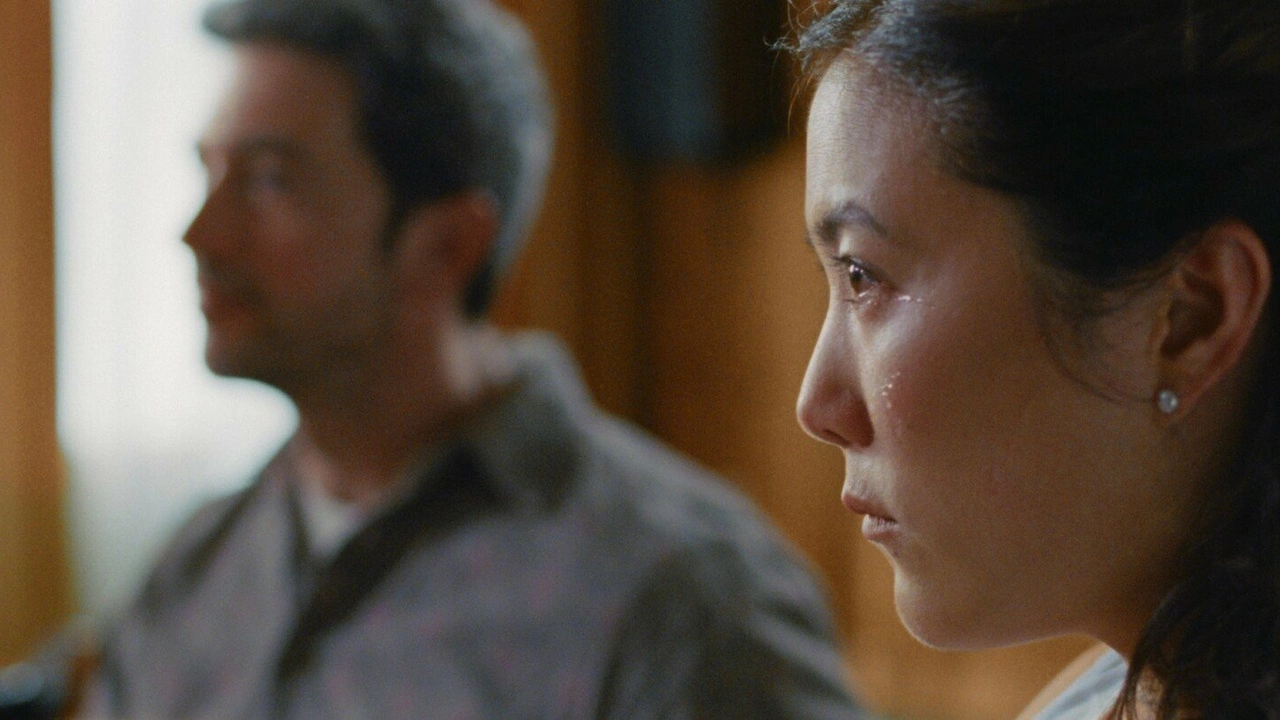
“I don’t know if I ever loved you. Somehow, I convinced myself I didn’t need to.” In an intense moment in Meredith Hama-Brown’s Seagrass, Judith confesses to her husband. It is a moment that, for a minute, liberates you to disassociate from every bond (or every shackle) and lets you examine the point of being in it. Why do we give a part of ourselves into a system or a setup that involves compromise? Particularly, if it happens to be our children or our chosen partner. Is it humanly possible to develop objectivity of this magnitude?
Seagrass, this way, feels personal. A sound family drama, it is about the intricate issues that plague adults and children. Hama-Brown’s film discusses how the family as a system is never a homogenous entity. It isn’t self-sustaining either. You might be having your mandatory family dinners but the larger cracks are never really visible. You may talk from nine to nineteen but your silences would only magnify the distance. Inadequate communication is precisely what drifts Judith from her husband Steve to eventually develop insecurity among their children Stephanie and Emmy.
The film is set around a week-long couples’ retreat along the Canadian coast. The children spend time by the sea as the adults take part in serious sessions to improve their connection with their respective partners. Among the two, we observe how Judith is more detached in the relationship although Steve’s denial and perceived supremacy (which has several layers including racial) is hard to go unnoticed. To alleviate his insecurity further, the writer throws in a ‘better’ couple – Pat and Sam – into the matrix. Will Steve realize what’s going wrong within him? Will Judith ever articulate her emotions with precise clarity? Seagrass raises these interesting questions as it tiptoes into a frightening finale.
Hama-Brown conceives the grammar of a modern family with a highly relatable temperament. If one may ask why the couple is falling apart, no one would have an answer. Not even Judith and Steve. Years into their relationship, they have reached a space where they seek permission before a cuddle. There is boredom. There are undiscussed issues and then there are ‘options’ outside the marriage. The filmmaker creates an arc of sexual tension between Judith and Pat which does not go as we expect. The film does not tell us if Pat and Sam are actually the ideal couple they are perceived to be. Rightfully so because Seagrass is not their story.
The screenplay also adds smaller yet parallel layers to the plot. One is where Stephanie deals with racism, teenage woes, and the pressure to come of age. Another is Judith’s own unresolved issues with her ethnocultural identity which subconsciously trickles down to her children although it never hinders her husband from making passively racist statements. Belonging to what they call the “normal” race, he would seldom identify with the plight of being different.
It’s not just the writing that arrests you in Seagrass. Norm Li’s glowing cinematography is one of the film’s major assets. The slow and often angular shots caress their subjects beautifully to slowly give you a fly-on-the-way view of their world. The ocean, with its stillness and as a potential source of terror, has been filmed with style and the impact gets further enhanced with Oscar Vargas’ tempestuous sound design.
The performances are wholesome from the ensemble cast. Ally Maki has a certain volatile energy that is brimming to explode which makes her the ideal actor to essay Judith. Luke Roberts is thorough with the material on paper and is pitch-perfect even in the trickiest and loudest of sequences. Nyha Huang Breitkreuz is a fantastic find and her eloquent eyes speak volumes and so does her life-like chemistry with her screen-sister Remy Marthaller.
Screened at the 54th International Film Festival of India, Goa, Seagrass is not a family film that feels like a warm hug. It does not resolve issues. Yet, what strikes a chord is the stark tinge of realism that surpasses notions of idealism. Meredith Hama-Brown’s film dives to learn how a bond is between the family members but sans serving sermons on how they ought to be. There is no ideal family and there is no perfect method to build one. Sometimes you learn to live with the cracks. The love might evaporate. The passion might dip. You would figure out ways to survive and the beauty lies right there in the process.
Rating: ★★★★

